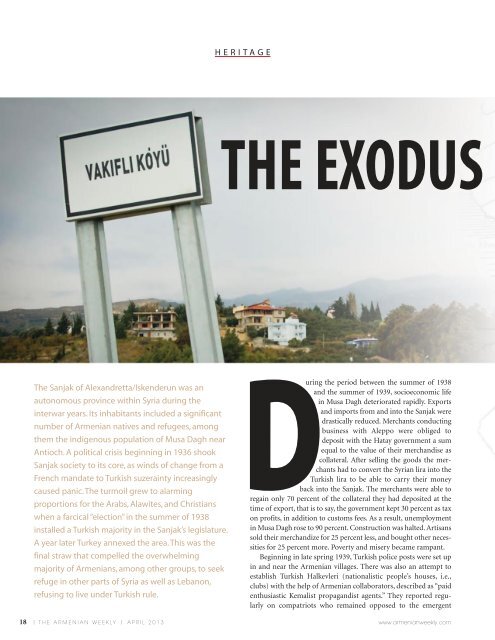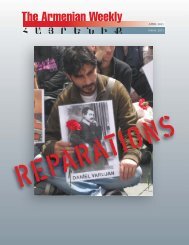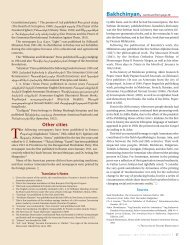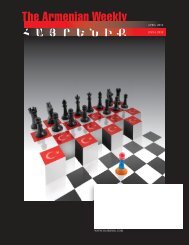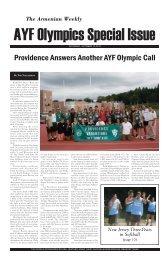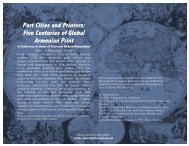Create successful ePaper yourself
Turn your PDF publications into a flip-book with our unique Google optimized e-Paper software.
HERITAGE<br />
THE EXODUS<br />
The Sanjak of Alexandretta/Iskenderun was an<br />
autonomous province within Syria during the<br />
interwar years. Its inhabitants included a significant<br />
number of <strong>Armenian</strong> natives and refugees, among<br />
them the indigenous population of Musa Dagh near<br />
Antioch. A political crisis beginning in 1936 shook<br />
Sanjak society to its core, as winds of change from a<br />
French mandate to Turkish suzerainty increasingly<br />
caused panic. The turmoil grew to alarming<br />
proportions for the Arabs, Alawites, and Christians<br />
when a farcical “election” in the summer of 1938<br />
installed a Turkish majority in the Sanjak’s legislature.<br />
A year later Turkey annexed the area. This was the<br />
final straw that compelled the overwhelming<br />
majority of <strong>Armenian</strong>s, among other groups, to seek<br />
refuge in other parts of Syria as well as Lebanon,<br />
refusing to live under Turkish rule.<br />
uring the period between the summer of 1938<br />
and the summer of 1939, socioeconomic life<br />
in Musa Dagh deteriorated rapidly. Exports<br />
and imports from and into the Sanjak were<br />
drastically reduced. Merchants conducting<br />
business with Aleppo were obliged to<br />
deposit with the Hatay government a sum<br />
equal to the value of their merchandise as<br />
collateral. After selling the goods the merchants<br />
had to convert the Syrian lira into the<br />
Turkish lira to be able to carry their money<br />
back into the Sanjak. The merchants were able to<br />
regain only 70 percent of the collateral they had deposited at the<br />
time of export, that is to say, the government kept 30 percent as tax<br />
on profits, in addition to customs fees. As a result, unemployment<br />
in Musa Dagh rose to 90 percent. Construction was halted. Artisans<br />
sold their merchandize for 25 percent less, and bought other necessities<br />
for 25 percent more. Poverty and misery became rampant.<br />
Beginning in late spring 1939, Turkish police posts were set up<br />
in and near the <strong>Armenian</strong> villages. T<strong>here</strong> was also an attempt to<br />
establish Turkish Halkevleri (nationalistic people’s houses, i.e.,<br />
clubs) with the help of <strong>Armenian</strong> collaborators, described as “paid<br />
enthusiastic Kemalist propagandist agents.” They reported regularly<br />
on compatriots who remained opposed to the emergent<br />
18<br />
| THE ARMENIAN WEEKLY | APRIL 2013<br />
www.armenianweekly.com


